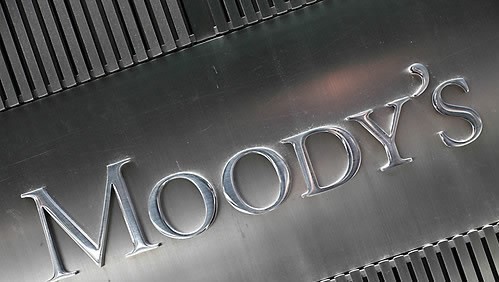Moody's to closely monitor S. Korean non-banking sector's asset soundness: analyst
By YonhapPublished : Dec. 7, 2021 - 14:29

Moody's Investors Service will closely monitor the asset soundness of non-banking financial institutions in South Korea amid worries that they could face risks from snowballing corporate and household debt and rising interest rates, an analyst of the global credit appraiser said Tuesday.
In a virtual media briefing, Ok Tae-jong, a senior analyst at Moodys' Investors also said that a continued increase in household debt and asset prices could negatively affect the evaluation of the overall banking industry.
"Interest rates are on the rise at a time when corporate and household debt remain high," he told the briefing. "We do not predict a rapid deterioration of asset soundness of the banking circle as it has a large portion of low-risk customers."
"But we will closely monitor the asset soundness of the non-banking financial firms holding a large portion of high-risk customers," he added.
The analyst said that it cannot be said that property prices in South Korea have soared more than those in other Asian countries over the past decade but what is for sure is that the prices have soared in the past two years.
He noted that if corporate and household debts continue to rise and the bubble in the property market grows, it could have a negative impact on the evaluation of the banking industry.
Pointing out that South Korea raised its key policy rate for the first time among the Group of 20 countries since the pandemic outbreak, he said that rate hikes will be one of major risks facing the banking industry throughout next year.
The Bank of Korea delivered its first pandemic-era 0.25 percentage point rate hike in August. Following yet another quarter percentage point hike in November, the rate now stands at 1 percent.
The BOK hinted at the possibility of further rate increases in the months to come amid persistent inflation worries. (Yonhap)
In a virtual media briefing, Ok Tae-jong, a senior analyst at Moodys' Investors also said that a continued increase in household debt and asset prices could negatively affect the evaluation of the overall banking industry.
"Interest rates are on the rise at a time when corporate and household debt remain high," he told the briefing. "We do not predict a rapid deterioration of asset soundness of the banking circle as it has a large portion of low-risk customers."
"But we will closely monitor the asset soundness of the non-banking financial firms holding a large portion of high-risk customers," he added.
The analyst said that it cannot be said that property prices in South Korea have soared more than those in other Asian countries over the past decade but what is for sure is that the prices have soared in the past two years.
He noted that if corporate and household debts continue to rise and the bubble in the property market grows, it could have a negative impact on the evaluation of the banking industry.
Pointing out that South Korea raised its key policy rate for the first time among the Group of 20 countries since the pandemic outbreak, he said that rate hikes will be one of major risks facing the banking industry throughout next year.
The Bank of Korea delivered its first pandemic-era 0.25 percentage point rate hike in August. Following yet another quarter percentage point hike in November, the rate now stands at 1 percent.
The BOK hinted at the possibility of further rate increases in the months to come amid persistent inflation worries. (Yonhap)



![[Herald Interview] 'Amid aging population, Korea to invite more young professionals from overseas'](http://res.heraldm.com/phpwas/restmb_idxmake.php?idx=644&simg=/content/image/2024/04/24/20240424050844_0.jpg&u=20240424200058)













![[KH Explains] Korean shipbuilding stocks rally: Real growth or bubble?](http://res.heraldm.com/phpwas/restmb_idxmake.php?idx=652&simg=/content/image/2024/04/25/20240425050656_0.jpg&u=)

